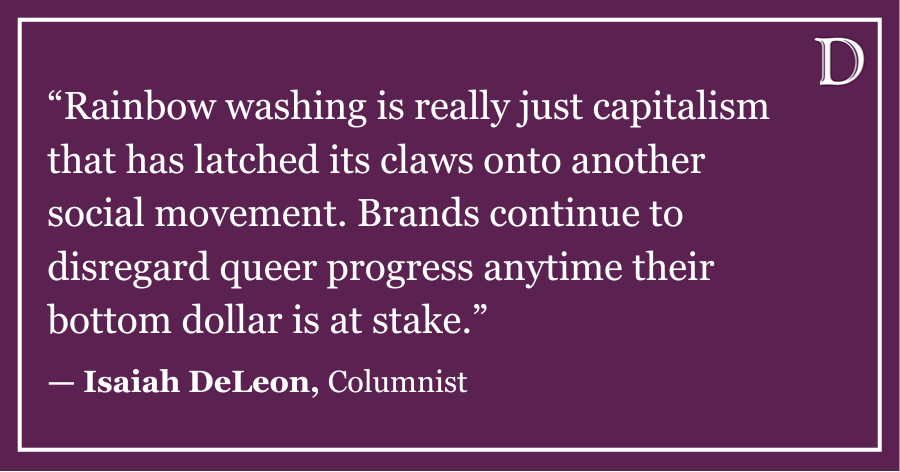Remember three or four years ago when you would have died to get your hands on an iPhone? When I say died, clearly I’m hyperbolizing just a bit, but there was a time not so long ago when having an iPhone carried a cache that was unmatched in any other tech product.
The cult following Apple products had been unlike anything that I had ever seen. Like finding a unicorn, Apple mastered the ability to appeal to a widespread commercial market while also maintaining that nebulous magnetism of a small niche company. To put it in simple vernacular, Apple was cool.
Unfortunately, “was” is the operative word, in my opinion. Though the shift has been subtle, there is no denying that Apple has lost some of its mysticism in the year since Steve Jobs died.
It’s not hard to pinpoint exactly what changed in the company. As soon as Apple began to publicize its own awareness about earnings and capital, the jig was up. Suddenly, the relative “failure” of the iPhone 5, the entirely lackluster iPad Mini, the catastrophe of Apple maps and then the fumbling in the new iTunes update, Apple’s mistakes stacked up on each other, culminating in a dramatic lack of cache. As consumers we want to purchase a product without the burden of the real world intruding. Apple provided an escape; so much so, I’d say we weren’t really aware that we were paying.
I’m usually wary of using the word “we” when writing columns because of the way it seems to suggest sweeping generalizations and a heavy-handed use of group minded ethos that is, if not obvious, entirely assumptive. However, I have no scruples whatsoever about saying that “we” as a generation are completely enamored by our electronic toys. There is something intrinsically alluring about technology and its inherent inhumaneness that makes it an enigma that we can’t help but want to solve. It’s a phenomenon, this addiction we have to electronics and the rapid pace in which they seem to be innovated at, that has made companies such as Apple, Facebook and Twitter so successful.
They have capitalized on our obsession with mystery, monetized the power of the enigma and, most of all, put a price on “coolness.” No longer are tech companies simply about the hardware they produce — if it were that easy, every engineer coming out of the small array of top-notch colleges across the world would be the next Steve Jobs. No, there is a definitive “it” factor that a company has to have. Instead the technology innovation game is simple in the fact that in order to create a desirable product, the mystery shrouding the product has to be just as innovative as the technology itself.
It is not a shocker that we like to be surprised. Human beings have the odd impulse to indulge in the grotesque. The same reason that we rubberneck at scenes of car accidents and force ourselves to see scary movies that make us scream is the reason why not knowing about a product, such as Apple’s secret, shrouded unveiling of their new products or the way that Facebook used to possess an air of exclusivity (used to being the operative word there) that unnerved us and yet gave us the burning, insatiable desire to be a part of it. Remember when owning an iPhone was more precious than gold and the amount of Facebook friends you had junior year in high school determined your standing on the social hierarchy (hopefully only in your slightly vapid and delusional 17-year-old brain).
Edmund Burke defined this feeling of being slightly terrified, of appreciating something bigger than ourselves in that it made us feel small, insignificant, and altogether allowed as the sublime, and it is the sublime that has, for all intents and purposes, been harnessed to market technology to our young, distracted and easily enthralled generation.
Apple was so easy to admire in its sublime glory. Unfortunately, the blinders have already come off, and in the place of the dazzlingly perplexing tech giant is a greedy, slightly dull shell of its former innovative self. And to top it off, my iPhone depletes battery in about two seconds flat, something that I myself have decided to deem inherently uncool.
Arabella Watters is a Medill sophomore. She can be reached at [email protected]. If you would like to respond publicly to this column, email a Letter to the Editor to [email protected].























